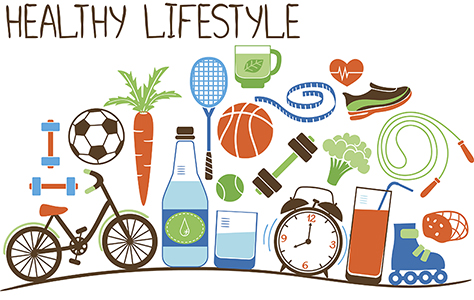What is COVID-19
COVID-19 is the infectious disease caused by the most recently discovered coronavirus. This new virus and disease were unknown before the outbreak began in Wuhan, China, in December 2019.
What are the symptoms of COVID-19?
The most common symptoms of COVID-19 are
COVID-19 is the infectious disease caused by the most recently discovered coronavirus. This new virus and disease were unknown before the outbreak began in Wuhan, China, in December 2019.
What are the symptoms of COVID-19?
The most common symptoms of COVID-19 are
- Fever
- Tiredness
- Sore throat
- Dry cough
- Aches and pains
- Nasal congestion
- Diarrhea
These symptoms are usually mild and begin gradually.
Some
people become infected but don’t develop any symptoms and don't feel unwell.
Most people (about 80%) recover from the disease without needing special
treatment.
Around 1 out of every 6 people who gets COVID-19 becomes seriously
ill and develops difficulty breathing.
Older people, and those with underlying
medical problems like high blood pressure, heart problems or diabetes, are more
likely to develop serious illness.
People with fever, cough and difficulty
breathing should seek medical attention.
How does COVID-19 spread?
People can catch COVID-19 from others who have the virus.
The disease can spread from person to person through small droplets from the
nose or mouth which are spread when a person with COVID-19 coughs or exhales. This is why it is important to stay more than 1 meter (3 feet) away from a person who is sick.
These droplets land on objects and surfaces around the person. Other people
then catch COVID-19 by touching these objects or surfaces, then touching their
eyes, nose or mouth.
What can I do to protect myself and prevent the spread
of disease?
Protection measures for everyone
- Regularly and thoroughly clean your hands with an alcohol-based hand rub or wash them with soap and water.
- Maintain at least 1 metre (3 feet) distance between yourself and anyone who is coughing or sneezing. Because when someone coughs or sneezes they spray small liquid droplets from their nose or mouth which may contain virus. If you are too close, you can breathe in the droplets, including the COVID-19 virus if the person coughing has the disease.
- Avoid touching eyes, nose and mouth. Because hands touch many surfaces and can pick up viruses. Once contaminated, hands can transfer the virus to your eyes, nose or mouth. From there, the virus can enter your body and can make you sick.
- Make sure you, and the people around you, follow good respiratory hygiene. This means covering your mouth and nose with your bent elbow or tissue when you cough or sneeze. Then dispose of the used tissue immediately.
- Stay home if you feel unwell. If you have a fever, cough and difficulty breathing, seek medical attention and call in advance. Follow the directions of your local health authority. This will also protect you and help prevent spread of viruses and other infections.
Protection measures for persons who are in or have recently
visited (past 14 days) areas where COVID-19 is spreading
Follow the guidance outlined above (Protection measures for
everyone)
- Self-isolate by staying at home if you begin to feel unwell, even with mild symptoms such as headache, low grade fever (37.3 C/ 99.1 F or above) and slight runny nose, until you recover. If it is essential for you to have someone bring you supplies or to go out, e.g. to buy food, then wear a mask to avoid infecting other people.
- If you develop fever, cough and difficulty breathing, seek medical advice promptly as this may be due to a respiratory infection or other serious condition. Call in advance and tell your provider of any recent travel or contact with travelers.




No comments:
Post a Comment